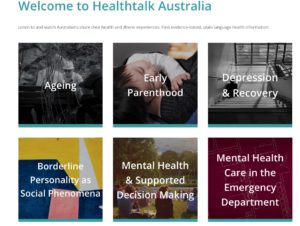The Nurses and Midwives’ Art Exchange
Collaborators: Kelly Hussey-Smith, Grace McQuilten, Fleur Summers, Mark Edgoose. Funding was received from ACN, CAST, Eastern Health (Peter Mellow), and Design and Creative Practice Enabling Capability Platform (RMIT University). This collaborative project named the Nurses and Midwives art exchange was an attempt to hear and amplify the collective voices of these professionals, whose views and […]




